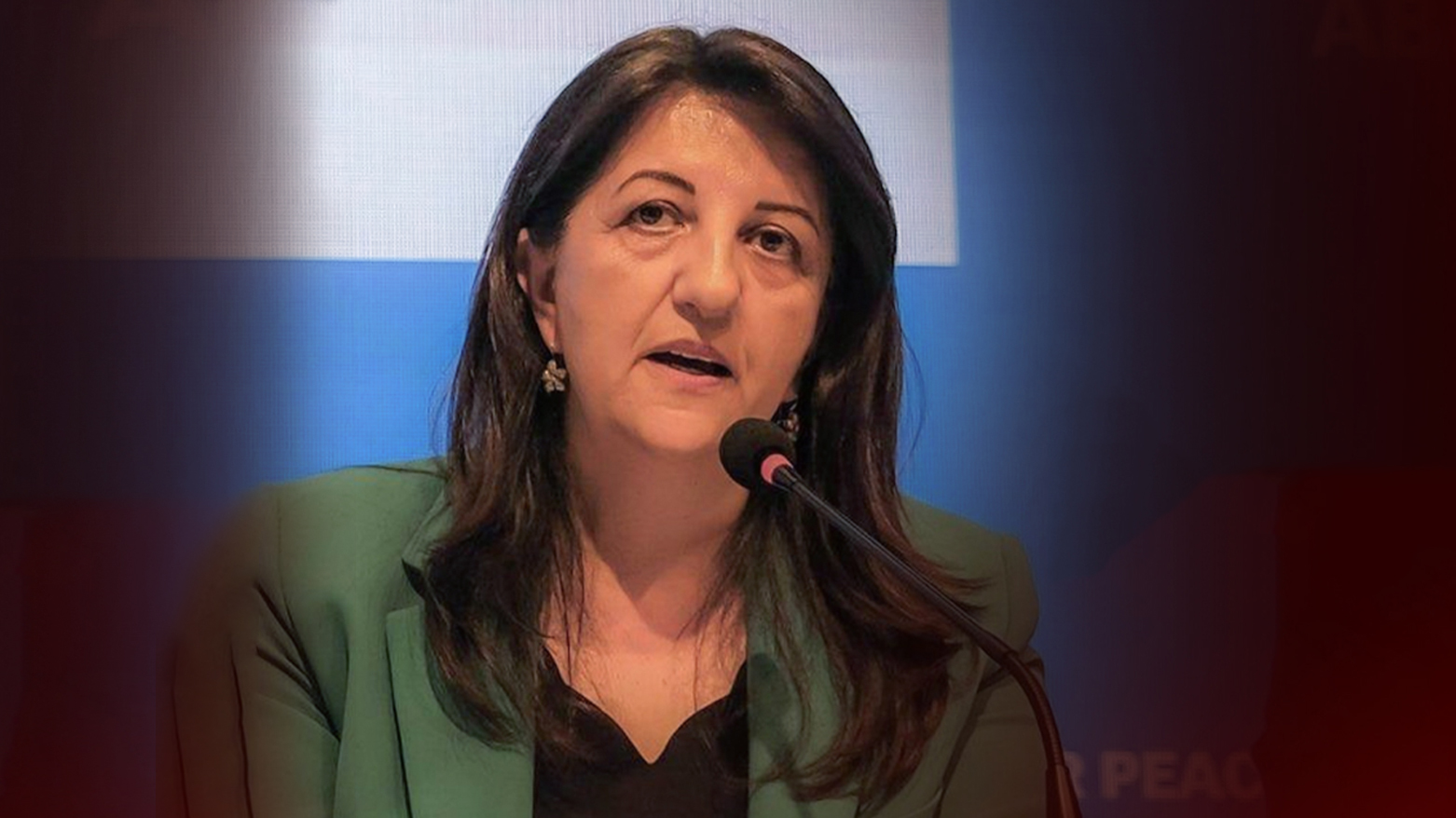DEM Party’s Chairwoman: Ocalan Views Western Kurdistan as a “Red Line”
DEM Party’s Buldan says Ocalan views Western Kurdistan (Rojava) as a “red line,” stressing its strategic significance. The statement contrasts with Turkish warnings against Kurdish autonomy in Syria.

ERBIL (Kurdistan24) – Pervin Buldan, parliamentarian of the Democratic Party (DEM Party) and member of the İmralı delegation, revealed that Abdullah Ocalan, the imprisoned leader of the Kurdistan Workers’ Party (PKK), has repeatedly described Rojava (Western Kurdistan) as a “red line” during discussions with visiting delegations.
Speaking to media outlets close to her party, Buldan explained that although Ocalan primarily focused on Turkey’s peace process during past İmralı meetings, he underscored on several occasions that the developments in Syria and Western Kurdistan hold a unique and strategic significance for him.
Buldan called on the Turkish Parliament’s Peace Process Commission to reconvene with Ocalan, arguing that his insights remain essential for advancing dialogue.
“There should be no misunderstanding: that commission was not established to solve the Kurdish question itself, but rather to address the phase of disarmament and certain matters specific to the PKK,” Buldan clarified. “Yet, its role and mission carry weight. Ocalan has many points to present to the commission, and it should hear him directly.”
Buldan noted that Ocalan, while discussing Syria only occasionally, emphasized that the fate of Western Kurdistan is a matter he considers a red line. “For him, Rojava is not just a geopolitical issue but a defining frontier of Kurdish existence and rights,” she said.
Her remarks come at a time of renewed tension over the political and administrative future of North and East Syria (western Kurdistan). Kurdish actors continue to advocate for decentralized governance within Syria, while Ankara insists that any move toward federalism or partition poses an existential threat.
On Tuesday, Devlet Bahçeli, head of the Nationalist Movement Party (MHP), warned that “no power can break the bond between Kurds and Turks,” but stressed that any attempt in Syria “under the name of federalism or partition represents a serious threat” to Türkiye’s national security.
He insisted that countering such initiatives would be a “legitimate and sacred duty,” underscoring that Ankara expects the Syrian Democratic Forces (SDF) to fully adhere to the March 10 agreement signed with Damascus. Bahçeli cautioned that a military operation by the SDF would compel a coordinated Turkish-Syrian military response.
Parallel to Bahçeli’s remarks, Turkish President Recep Tayyip Erdoğan reaffirmed his government’s commitment to the sovereignty and stability of Syria. Speaking to journalists on his return from the Shanghai Cooperation Organisation (SCO) summit in China, Erdoğan said:
“We want lasting prosperity and peace to be established in our neighbor Syria, and we care about its unity and togetherness. Neither we nor the Damascus administration would consent to those who want to create turmoil on Syrian soil.”
Erdoğan’s statement highlights Ankara’s dual strategy: projecting fraternity by affirming Kurds as “our brothers wherever they live,” while simultaneously drawing uncompromising red lines against federalism or Kurdish-led autonomy in Syria.
Buldan’s emphasis on Ocalan’s “red line” contrasts sharply with Ankara’s warnings, underscoring the deep divisions over Syria’s future. While Kurdish representatives call for dialogue and recognition of Kurdish rights within a decentralized Syria, Turkish officials portray such aspirations as threats to national unity.
Analysts say the intersection of these narratives will define the trajectory of both Turkey’s internal Kurdish question and the broader political order in Syria, where questions of governance, autonomy, and identity remain unresolved nearly 15 years into the conflict.
